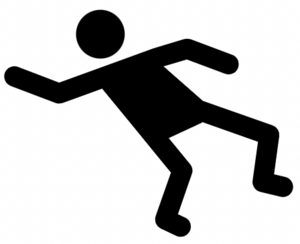Getting My Dementia Fall Risk To Work
Getting My Dementia Fall Risk To Work
Blog Article
The smart Trick of Dementia Fall Risk That Nobody is Discussing
Table of ContentsThe Best Guide To Dementia Fall RiskThe Of Dementia Fall RiskDementia Fall Risk for BeginnersFascination About Dementia Fall Risk
A loss danger assessment checks to see just how most likely it is that you will certainly drop. The assessment normally includes: This includes a series of concerns regarding your overall health and wellness and if you've had previous drops or issues with balance, standing, and/or strolling.Treatments are referrals that might decrease your danger of dropping. STEADI consists of three steps: you for your risk of falling for your threat variables that can be enhanced to attempt to stop falls (for instance, balance troubles, impaired vision) to minimize your threat of falling by making use of effective approaches (for instance, offering education and resources), you may be asked numerous concerns including: Have you dropped in the past year? Are you fretted about dropping?
If it takes you 12 secs or even more, it might mean you are at higher risk for an autumn. This test checks toughness and equilibrium.
Move one foot halfway forward, so the instep is touching the huge toe of your other foot. Relocate one foot completely in front of the other, so the toes are touching the heel of your various other foot.
The Best Guide To Dementia Fall Risk
Most drops occur as an outcome of multiple adding elements; as a result, taking care of the risk of falling begins with identifying the factors that add to fall risk - Dementia Fall Risk. A few of the most relevant threat factors include: History of previous fallsChronic medical conditionsAcute illnessImpaired stride and equilibrium, reduced extremity weaknessCognitive impairmentChanges in visionCertain risky medicines and polypharmacyEnvironmental variables can likewise boost the risk for falls, consisting of: Poor lightingUneven or damaged flooringWet or slippery floorsMissing or harmed hand rails and get barsDamaged or poorly equipped devices, such as beds, mobility devices, or walkersImproper use of assistive devicesInadequate guidance of the individuals living in the NF, consisting of those who show hostile behaviorsA effective fall risk monitoring program needs a comprehensive professional assessment, with input from all participants of the interdisciplinary team

The treatment strategy ought to likewise consist of interventions that are system-based, such as those that advertise a secure environment (ideal lights, hand rails, order bars, etc). The effectiveness of the interventions ought to be assessed regularly, and the care strategy changed as required to mirror modifications in the fall risk analysis. Executing a loss danger monitoring system utilizing evidence-based best practice can decrease the occurrence of drops in the NF, while restricting the potential for fall-related injuries.
The Ultimate Guide To Dementia Fall Risk
The AGS/BGS guideline suggests evaluating all adults aged 65 years and older for fall danger annually. This screening includes asking people whether they have actually fallen 2 or even more times in the previous year or sought medical attention for a loss, or, if they have actually not dropped, whether they really feel unsteady when walking.
Individuals that have actually dropped once without injury needs to have their equilibrium and gait evaluated; those with stride or equilibrium irregularities need to receive extra assessment. A background of 1 autumn without injury and without gait or equilibrium issues does not warrant additional evaluation beyond ongoing yearly fall threat testing. Dementia Fall Risk. A loss threat evaluation is called for as component of the Welcome to Medicare exam

Facts About Dementia Fall Risk Uncovered
Documenting a falls background is one of the high quality indications for loss prevention and administration. Psychoactive drugs in particular are independent predictors of drops.
Postural hypotension can often be minimized by minimizing the dosage of blood pressurelowering medications and/or quiting drugs that have orthostatic hypotension as a negative effects. Use above-the-knee support hose and resting with the head of the bed boosted might also reduce postural reductions in blood stress. The suggested components his comment is here of a fall-focused physical exam are displayed in Box 1.

A Yank time better than or equal to 12 seconds suggests high autumn threat. Being not able to stand up from a chair of knee elevation without using one's arms suggests raised autumn danger.
Report this page